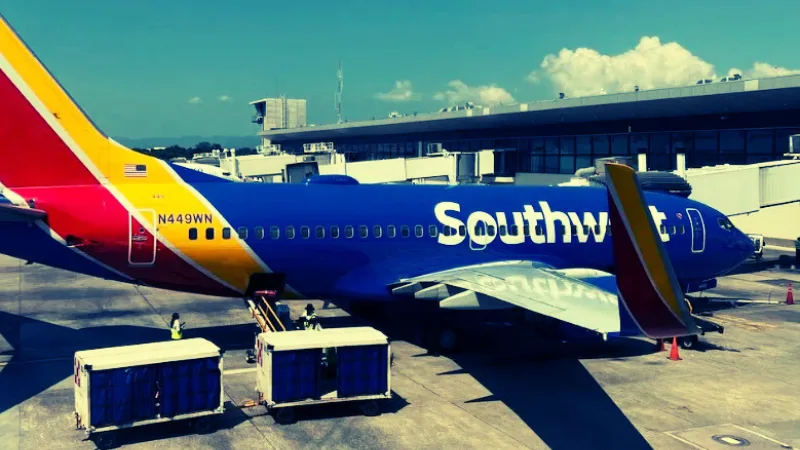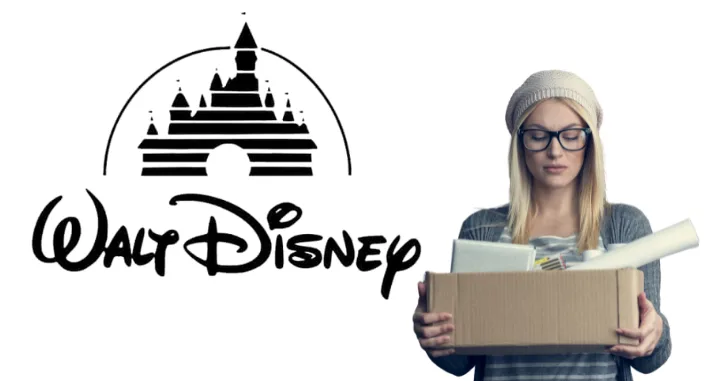Southwest Airlines is ending its iconic “Bags Fly Free” policy. Starting May 28, 2025, passengers will now pay for their checked luggage—a major departure from a core feature that has long set the carrier apart from its competitors. This change isn’t just a minor policy update; it’s a fundamental shift in how the airline operates and how it positions itself in the hyper-competitive U.S. aviation market.
In this article, we’ll break down what’s changing, why it matters for travelers and investors, and how this could reshape customer loyalty, airline pricing strategies, and market expectations going forward.
What’s Changing With Southwest Airlines’ Baggage Policy?
As of May 28, 2025:
- First checked bag: $35
- Second checked bag: $45
- Fees apply to new bookings only (existing reservations made prior to the date remain eligible for two free checked bags unless altered).
This change marks the end of Southwest’s long-running “Bags Fly Free” slogan, a major part of its branding and appeal for budget-conscious travelers.
According to a statement from Southwest Airlines, the change is “designed to align with evolving industry standards while enabling us to reinvest in customer experience and operational improvements.”
Who Still Gets Free Bags?
While most passengers will now have to pay baggage fees, there are exceptions. The following groups will retain checked baggage privileges:
- A-List Preferred Members: Two free checked bags
- Business Select or Choice Extra Fares: Two free checked bags
- A-List Members & Southwest Credit Card Holders: One free checked bag
These carve-outs aim to preserve loyalty perks and incentivize more travelers to upgrade fares or sign up for Southwest-branded credit cards.
Why Is Southwest Airlines Charging for Bags Now?
Let’s cut through the corporate speak—this is about revenue generation. The airline industry is under immense pressure from rising fuel costs, labor demands, aircraft delays, and volatile travel demand. While Southwest has historically resisted the urge to nickel-and-dime passengers, the writing has been on the wall.
Industry Pressure and Peer Comparison
Every major U.S. airline already charges for checked luggage. Delta, United, and American Airlines rake in billions annually through baggage fees. Southwest, by not charging, was effectively leaving money on the table.
A recent analysis from JPMorgan Chase estimates Southwest could generate up to $1.5 billion annually in new revenue through this fee structure.
The Bigger Picture: Other Changes Coming to Southwest
The end of free baggage is part of a broader transformation at Southwest Airlines:
1. Introduction of Basic Economy Fares
These new fare types, rolling out May 28, offer lower ticket prices but with more restrictions:
- No changes or cancellations
- No standby options
- Expiring flight credits after six months
This model mimics similar offerings from Delta and United. It’s a revenue play that also encourages travelers to spend more for flexibility.
2. Goodbye Open Seating: Assigned Seats Coming
The airline has confirmed that it will begin phasing out open seating in 2026 in favor of assigned seats. While open seating was once a Southwest hallmark, many passengers—especially business travelers—prefer the predictability of knowing where they’ll sit.
How This Impacts Travelers
Cost-Conscious Travelers May Look Elsewhere
One of the biggest competitive advantages for Southwest was its no-fee model. Travelers booking round-trip flights with two bags could save $140 or more versus competitors. That advantage is now gone.
Loyalty Will Shift to Credit Card Perks and Fare Classes
Southwest is clearly trying to push travelers into its ecosystem of co-branded credit cards and loyalty programs. Those benefits now become not just nice-to-haves—but essential for cost-conscious frequent flyers.
Families and Group Travelers Hit the Hardest
Families traveling with kids who pack more or group trips involving checked items will see their total trip cost increase substantially. Expect greater scrutiny and planning when booking Southwest in the future.
Investor Insight: A Necessary Evil?
From an investor’s standpoint, Southwest’s decision is pragmatic. While some loyal customers may grumble or jump ship, the added revenue potential could significantly improve the airline’s balance sheet.
Here are the key reasons why:
1. Revenue Diversification
Baggage fees provide stable, predictable ancillary income, reducing reliance on airfare margins alone. This is critical in a volatile macroeconomic environment.
2. Shareholder Expectations
Wall Street has been pressuring Southwest to unlock new revenue streams. The company has lagged behind its peers in monetizing its customer base. This move may boost EPS and help Southwest maintain or increase dividend payouts.
3. Operational Cost Coverage
Labor costs are up. Fuel costs are volatile. Boeing aircraft delivery delays have disrupted schedules. The added revenue from bag fees gives Southwest breathing room to absorb these costs without constantly hiking base fares.
What Are the Risks?
No move is without downside. Here are some potential landmines:
1. Loss of Brand Differentiation
Southwest’s entire brand was built around transparency, simplicity, and customer-friendly policies. With fees coming into play, it’s just another airline.
2. Customer Backlash
While many passengers will accept the change, others may resent it. If pricing isn’t aggressively competitive, Southwest could see bookings decline among its most loyal flyers.
3. Execution Missteps
Rolling out multiple policy changes—baggage fees, basic economy, and seating revamp—within a short timeframe increases the risk of operational chaos. If poorly implemented, this could impact both customer experience and employee morale.
What Should Investors Watch For?
If you’re an investor or considering Southwest stock (LUV), here are key metrics to monitor in the next two quarters:
- Revenue from baggage fees vs. passenger volume change
- Customer satisfaction and loyalty scores
- Adoption rates for new fare classes and co-branded credit cards
- Competitive response from airlines like JetBlue or Alaska
If the move successfully boosts revenue without cratering customer satisfaction, expect bullish sentiment from analysts.
A Smart Move That Comes With Risk
Southwest Airlines ending its free baggage policy is a bold but necessary pivot. The market has changed. Wall Street demands profitability. And competitors have long since crossed the fee Rubicon.
But with that change comes a risk of alienating loyal customers and losing the identity that made Southwest the “people’s airline.” The success of this shift will hinge on execution, communication, and whether travelers ultimately feel they’re still getting value for their money.





